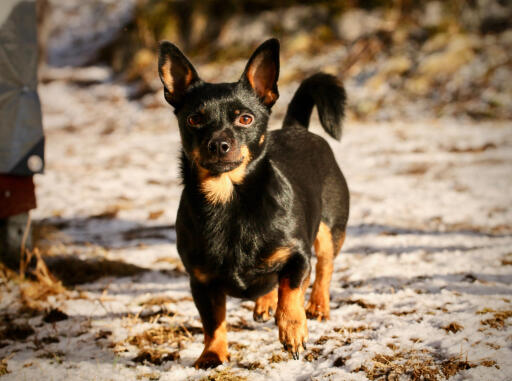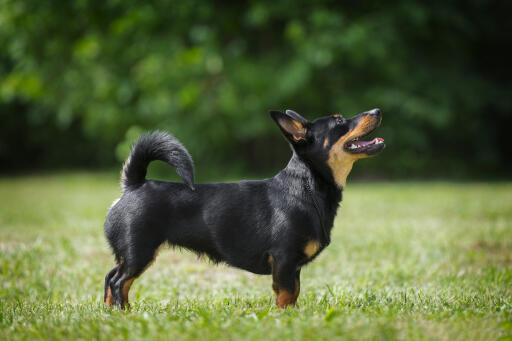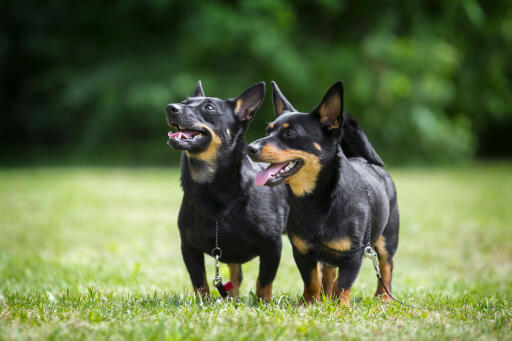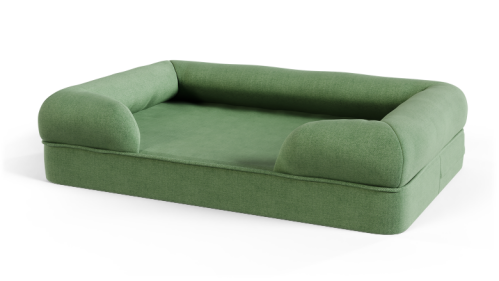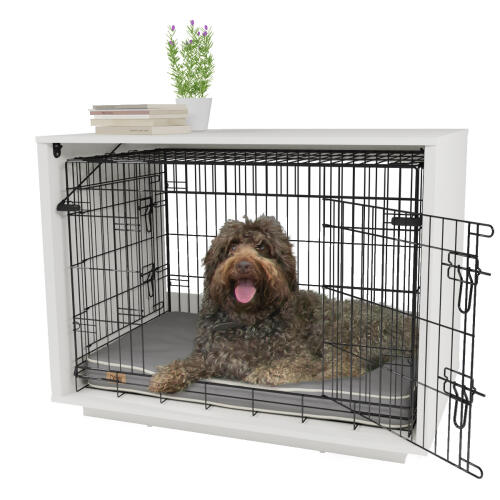Lancashire Heeler hund




History
The Lancashire Heeler, also known as the Ormskirk Heeler, originates from Lancashire, UK and has been a working breed for at least 150 years. It was used to herd and drive cattle to market and was small enough to nip at the heels of cattle to get them to move, but quick enough to avoid being kicked. When not being used to work cattle, they were excellent at vermin control on the farm. The breed soon died out when farmers no longer used driving dogs and it is thought that the modern day breed is a cross between the Manchester Terrier and the Welsh Corgi to produce a compact, striking black and tan dog. They are identical to the original Heelers.
Behaviour
Friendly, active and alert best describes the Lancashire Heeler. They are good with older respectful children and fit well into a family as long as they receive plenty of exercise. Their natural herding instinct can become a problem with small children in case they try and nip at their heels, but with training this can be stopped. They are very loving towards their immediate family and usually accepting of visitors that they know well. Heelers can be very wary and defensive with strangers in the home, so it is best to get them used to lots of people entering the house from an early age.
With other dogs, the Heeler can be aggressive if not properly socialised, so puppy training and walking them where other dogs are present will help eliminate this issue.
When it comes to training, the Heeler is intelligent but can be very stubborn. They have their own mind and will sometimes want to learn and sometimes not, so patience and a kind, firm hand is needed. Positive reinforcement, play and food rewards work well and lots of patience. Their natural chase instinct for small furry animals make off lead walking a challenge at times, so they really need to walk on a lead or in a safe area. As with all dogs, recall does depend on the individual; some are very good and easy to teach.
For a small dog, they need a fair amount of exercise. A long daily walk is enough to meet their needs, but whatever you can give them, they will accept; the more the better. They love to run around and play, will play ball and frisbee if taught and this is a great way to tire them out. They have a surprising amount of strength! Some Heelers can be quite lazy and be happy with a relatively short walk, then back home for a nap on the sofa. Agility, obedience and Flyball are some of the activities that Heelers do well at.
Their smooth coat is easy to care for and just requires a brush very few days to remove dead hair.
They are a healthy breed with few issues but eye related problems can occur, such as Lens Luxation.
Breed Details
- Status: Rare
- Life Expectancy: 12 - 15 years
- Weight: 12 - 18 pounds
- Højde: 10 - 12"
- Rare: Nej

